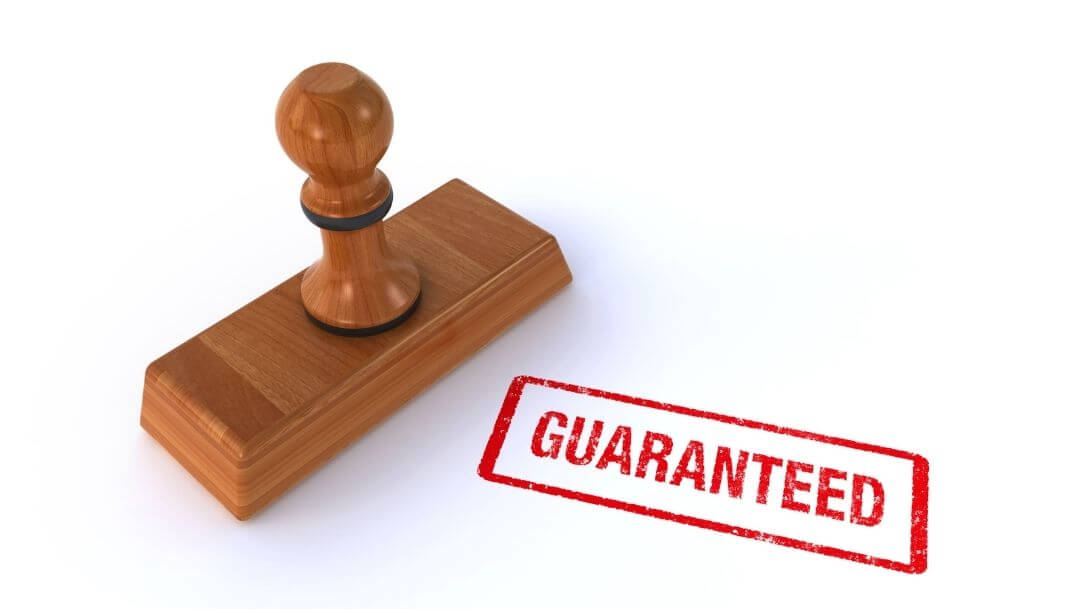Key Takeaways
- Understand what a credit score is and what it means to lenders
- Compare some of the top “bad credit” lenders available
- Learn about different types of mortgages
- Tips for boosting your credit score
Explaining credit scores
Lenders use credit scores to determine how trustworthy a borrower is or how likely they are to pay back the money loaned to them. The higher a credit score is, the more likely they are to loan money to the borrower.
FICO scores range from a low of 300 to a high of 800. How your credit score is determined is based upon a number of factors, including how reliable your payment history is, how many credit accounts you have opened, how old the credit accounts are, and how much debt you have.
Credit score chart
| Very Poor | 300-579 |
| Fair | 580-669 |
| Good | 670-739 |
| Very Good | 740-799 |
| Excellent | 800-850 |
If your credit score is low, it may be beneficial for you to monitor your credit with a credit monitoring service to give you tips and advice for improving your credit. If your credit is really low and you are struggling to improve it on your own, enlisting the help of a credit repair company can help. Taking steps to improve your credit before purchasing a home will ensure you get a better interest rate, which affects the amount of money you will pay over the life of the loan.

10 best mortgage lenders for borrowers with bad credit scores
While there is no guarantee, there are programs that offer bad credit home loans. It is possible to obtain a home loan with bad credit—so, if you’ve been looking around with no luck, don’t give up yet. There are several companies and loan programs available to people with less-than-stellar credit.
1. Lending Tree
Lending Tree is not a traditional lender. Rather, they are a service that helps people with bad credit find a lender by submitting the borrower’s information to a variety of lenders.
Pros
- Lending Tree boasts a simple four-step process.
- They eliminate the need to look at each lender’s requirements, allowing the borrower to simply compare and contrast their options.
- There is no fee to use their service.
- Potentially better rates because the lenders compete with one another to offer better rates to the borrower.
Cons
- They submit offers to all their lending partners, which leads to the potential of unwanted offers and spam.
- Rates go as high as 29% APR, which leads to a much higher cost for the borrower for the life of the loan.
2. PNC Bank mortgage
PNC Bank is one of the largest full-service mortgage lending banks in the United States. They offer a wide range of mortgage options, including low down payment mortgages. However, they do require a credit score of at least 620 for the majority of their loan programs.
Pros
- PNC considers non-traditional credit history, such as rental payment history to approve a loan.
- Their website has updated mortgage rates so that a customer is never blindsided by current rates.
- They offer a variety of loan programs including VA and FHA loans.
Cons
- Their application is not available entirely online, meaning it must be completed in person.
- In-person service is unavailable in some states, which means that PNC will not work for everyone.
3. Wells Fargo Home mortgage
Wells Fargo Home Mortgage offers Easy to Own programs that provide options for buyers with lower income, limited credit history, and low down payment options.
Pros
- Wells Fargo has updated rates posted on its website.
- They are updated daily.
- They offer a variety of loan programs including FHA, USDA, and VHA loans.
Their website boasts many educational products including videos and articles that will help you obtain a mortgage and understand the process.
Cons
- Their trust has been eroded because of government scandals.
- New applications for home equity lines of credit have been suspended because of COVID-19.
4. New American Funding
New American Funding is a mortgage lender that offers a wide range of different mortgage options to help those of all backgrounds accomplish the dream of homeownership.
Pros
- They offer a variety of loan programs.
- You can install their app on your mobile device for convenient mortgage management.
- Their website offers calculators and a variety of other mortgage educational resources.
- Their mortgages are bilingual, making it easier for a native Spanish speaker to purchase a home.
Cons
- New American Funding programs are not available in some states, such as Hawaii and New York.
5. Navy Federal Credit Union mortgage
Navy Federal Credit Union is a bank that provides services to members of all branches of the military, veterans, DoD employees, and all their family members. They are a not-for-profit credit union to provide services and loans with affordable rates and manageable terms. While they do take credit score into account when determining a loan, they also consider your banking history.
Pros
- Navy Federal Credit Union offers loans with no down payment, making it easier for first-time homebuyers to purchase a home.
- They offer a variety of loan services including VA loans.
- They offer an online application for pre-approval making applying for a mortgage simple and easy.
Cons
- The website does not offer customized rates based on your credit score before you apply.
- Their mortgages are meant for military members or their families only.
6. CITI mortgage
CITI Mortgage offers a wide range of mortgage and refinancing loan options. While they do not list a minimum credit score required, they offer FHA loans that can be approved with credit scores as low as 500.
Pros
- CITI Mortgage offers customizable loan rates on its website based on credit and other factors.
- They offer low down-payment mortgages, which is beneficial for first-time homeowners.
- Their fees and rates are lower than many other lenders.
Cons
- They charge a fee for applying for a mortgage through them.
- They require you to complete the mortgage application with a loan officer, meaning the loans cannot be applied for online only.
7. Carrington mortgage
Carrington Mortgage offers a wide range of mortgage loan solutions, including their Flexible Advantage for borrowers with lower credit scores, high DTIs, self-employment, and even recent foreclosure or bankruptcy.
Pros
- Credit scores as low as 550 are accepted
- Recent credits events, such as bankruptcy, are acceptable
- Bank statements are acceptable for income verification for self-employed
Cons
- Lender fees can be higher than other lenders
- Does not offer home equity lines of credit
8. eMortgage
Similar to Lending Tree, eMortgage is an independent service that allows borrowers to submit their information to a wide range of lenders that can provide mortgage loan quotes.
Pros
- Eliminated the need to look search for specific lender’s requirements
- Allows borrowers to easily compare loan offers in order to find the one that best meets their needs
- Lenders compete with one another to offer better rates to the borrower, often meaning you will receive lower rates
Cons
- Can lead to unwanted spam
9. Rocket mortgage
As America’s largest online mortgage lender, Rocket Mortgage offers a wide range of mortgage options to meet the needs of borrowers. In addition, for those that appreciate online services, Rocket Mortgage offers a fully digital loan experience.
Pros
- Lower interest rates than other lenders
- Streamlined online process
- Low 580 minimum credit requirement
Cons
- Origination fees can be higher than other lenders
- Does not offer home equity loans or lines of credit
10. Mr. Cooper mortgage
For tech-savvy borrowers with less-than-ideal credit, Mr. Cooper Mortgage offers a full online loan application experience, including document submission. Credit score requirements vary based on loan type with 580 being the lowest for an FHA loan.
Pros
- Available in all states, Washington D.C., Puerto Rico, and the U.S. Virgin Islands
- Dedicated and non-dedicated loans with customizable terms
- Electronic loan document submission
- Easy-to-use app that allows you to monitor your application status and make payments
Cons
- No brick-and-mortar locations
- No USDA loans
- Fees for loan origination tend to be higher than other lenders

Government-backed agencies
Government-backed loans are less risky than subprime loans and they boast lower interest rates and lower down payments. These loans are better for someone who has bad credit and is looking to become a homeowner because the requirements are less stringent than a conventional home loan.
VA loans
VA loans are reserved for active-duty military members and veterans. These types of loans are guaranteed by the Department of Veteran Affairs. VA loans typically have a lower interest rate and can even be acquired with a 0% down payment in some cases. These loans are especially beneficial for people with a credit score of 620 or higher, but they can be acquired with a credit score of 580 or above in some cases.
USDA loans
A USDA loan is a loan that is typically offered to lower-income home buyers that are looking to purchase a home in a rural area. These loans boast a 0% down payment. The credit requirements for a USDA loan are a little bit higher, generally requiring a score of 640. However, there are exceptions, so if you are interested in a home in a rural area, a USDA loan might be a good fit.
FHA loans
An FHA loan is a government-backed loan through the Federal Housing Authority. The loan is meant for borrowers that have low credit, usually around 580 or above. As long as the borrower can provide a 3.5% down payment on the house, they’ll likely qualify for an FHA loan. The requirements for an FHA loan are less stringent than those for a VA or USDA loan making them a good choice for low-credit borrowers.
It is absolutely possible to find the right house for you, even if you have low or bad credit. There are a variety of tools available for you to increase your credit score. If your credit score is still lower than a conventional loan requires, you can search for a loan that is less risky and government-backed. Another option is to improve your credit score so you can enjoy the benefits of a lower interest rate and better terms for your home mortgage.
Tips to get a mortgage loan with bad credit
As a borrower with bad credit, it can seem like an uphill battle when it comes to homeownership. However, there are some things you can do to help improve your odds of obtaining a loan now.
Know your options: As we have shown, certain types of mortgage loans, such as FHA, are easier to qualify for with a lower credit score.
- Try a mortgage broker: Mortgage brokers represent many different lenders and may be able to find the right lender for your circumstances.
- Take a few months to improve your credit score: If you are not in a hurry, take a few months to spend down the balances on credit cards and be sure to pay all your accounts on time in order to boost your credit score.
- Increase your down payment: Take the time to set aside money to increase your down payment amount. Having a higher down payment makes you less risky to potential lenders.
Keep in mind that even if you do obtain a mortgage with a lower score, you will pay thousands of dollars more over a 30-year term compared to what you would pay with a higher credit score.
Options for buyers who can’t get bad credit mortgages
If you are still unable to qualify for a mortgage, it may be time to take a step back and work to improve your credit score, making you appear less risky to potential lenders. When working on improving your credit score, consider these tips.
- Make all payments on time: Payment history is responsible for as much as 35% of your credit score. Paying all bills on time can provide a substantial boost.
- Keep your credit utilization below 30%: When it comes to lines of credit, such as credit cards, how much credit you use determines your credit utilization. For example, if a credit card has a limit of $10,000 and you have charged $9,500, leaving $500 available, you have a 95% utilization score. In order to drop your utilization below 30%, pay off as much of your balances as possible. In addition, as you pay down your balances, you increase your available credit, which in turn raises your credit score.
- Make sure you have a good mix of credit: Credit can be revolving, such as credit cards, or installment, such as a vehicle loan. Having a good mix of these different credit types helps boost your score.
Choosing your best home loan options
If you are struggling with bad credit but are looking to purchase your home, there is still a chance that you will find a lender willing to offer you a loan. Keep in mind that this may mean higher interest rates and larger down payments, meaning you will pay more over the life of the loan. If you are not in a hurry to purchase a home, taking the time to repair your credit score can make a big difference when it comes to the terms of a loan you will qualify for.
Helping you navigate the home loan process
If you’re ready to start the home-buying journey, reach out to the experts at Hero Home Programs™. They will utilize their expertise to find grants and rebates for home buyers, as well as set you up with service vendors at reduced rates. Contact us today and we could help you save thousands of dollars on your home purchase.












